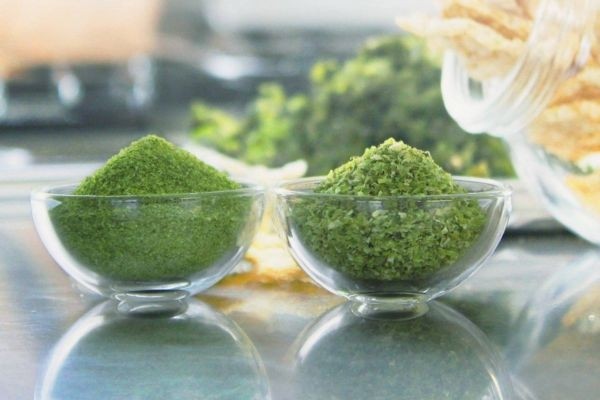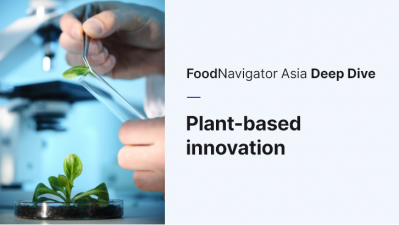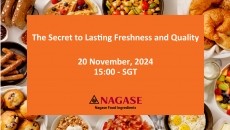Recipe for growth: '12 building blocks' for unlocking flavour opportunities in Asia and the Middle East - Haldin

With more than 60% of its business concentrated in European and American markets, the ingredients manufacturer is now setting its sights on Asia and the Middle East – regions showing good demand for sustainably sourced and health-focused ingredients.
Haldin has already established partnerships in countries such as Malaysia and Saudi Arabia and is looking to expand its footprint further in the region.
Asia and the Middle East are known for their rich culinary diversity and growing interest in natural, healthy ingredients. These are aligned with Haldin’s offerings.
“Consumers in these areas are increasingly drawn to clean-label products that emphasise natural ingredients, sustainability, and transparency – trends that Haldin’s 12 building blocks are well-positioned to meet,” said Arreza Hamsyah Fernanda, deputy commercial director at PT Haldin Pacific Semesta.
'12 Building Blocks' are a versatile foundation
The firm’s diverse portfolio of natural ingredients is sourced within Indonesia. They are used in mainly four categories – snacks, dairy and ice cream, beverages, and savoury products.
Twelve building blocks form the basis of the firm’s product offerings, which include functional, cosmetics and wellness ingredients, essential oils, and essences.
Its cosmetics and care ingredients include betel pepper and butterfly pea liquid extracts, both of which are anti-inflammatory and antioxidant, with skin and hair benefits.
Some of its novel ingredients include green coffee powder, purported to aid weight loss and improve skin health; purple rice powder, which is known to improve eye health; and kacip fatimah powder, which is traditionally used for postpartum care and other female-related health issues.
The remaining eight are base ingredients that are used worldwide – spices and seasoning, tea, coffee, cocoa, vanilla, fruit and vegetables, honey, and coconut.
Familiar ones across Asia and the Middle East include seaweed, tamarind, ginger, morinda, and turmeric.
These are versatile enough for adapting to local markets in different regions, catering to a broad range of consumer tastes and preferences.
For instance, spice blends can be tailored to traditional cuisines, aligning with regional flavour preferences.
Fruit and vegetable powders are also increasingly popular in beverages and snacks, offering a health-conscious alternative to synthetic ingredients.
Additionally, Haldin’s essential oils and extracts can be used in the region’s cosmetics and wellness markets, where natural and organic products are becoming mainstream.
The firm offers 100% pure, natural ingredients, as it does not use preservatives and other synthetic additives, said Fernanda.
Haldin’s offerings of preservative-free and sugar-free options mirrors global trends, particularly as more consumers gravitate toward health-focused diets.
The policy of offering natural, organic ingredients is tied to its sustainability focus, which the firm has been practising since its founding more than 30 years ago.
Protecting the environment makes economic sense for Haldin, since it is the source of its ingredients.
One of its latest initiatives includes launching a zero-emission initiative across all its product lines, beginning with coffee.
Haldin aims to make its coffee production zero-emission and zero-waste within five years, while also ensuring full transparency from the origin to the final product.
The firm also supplies organic ingredients like citronella oil and cocoa beans from Bali, ensuring purity and traceability while supporting local farmers.
Additionally, the firm practices zero-burning land clearing techniques for farming, relying solely on manual methods with local manpower. Natural materials like animal waste are used to enhance soil health, aligning with the growing demand for clean ingredients.
Navigating challenges
Despite the promising opportunities in Asia and the Middle East, Haldin is mindful of the challenges that come with expanding into these regions. Regulatory hurdles are an obstacle, particularly when it comes to meeting diverse organic certification and ingredient standard requirements in different countries.
Fernanda cites Japan and South Korea as examples of countries with strict regulations, which Haldin cannot meet at this point.
In addition, Haldin will need to address price issues in certain markets. While there is a strong demand for premium, natural ingredients, some segments of the market may be more price conscious.
China and India, for example, can offer similar ingredients at lower prices.
Haldin will therefore need to differentiate itself through its unique value propositions, such as the sustainability and full traceability of its products, said Fernanda.











